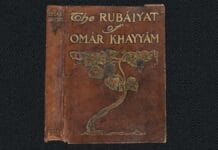A history play is a dramatic work where the events of the plot are either partially or entirely drawn from people and events of the past. It is also considered a theatrical genre. William Shakespeare wrote ten of these plays, each loosely based on an English monarch and the period in which he reigned. A history play consists usually of loosely connected episodes chronologically arranged. But, these plays remain works of fiction, whether based on a historical figure or not.
The historical drama is almost as old as theatre itself and continues to play a viable role in contemporary theatre. For the oldest surviving play, The Persians in 472 BC, Aeschylus drew on events from the Greco-Persian War in which he had fought eight years earlier. Using historical characters and events, he imagined dialogue, compressed episodes for dramatic effect, and dramatised material to make points relevant to his contemporary audience, all strategies that remain part of the genre. In The Poetics almost 140 years later, Aristotle advised that tragedies based on history increased an audience’s belief in the probability of events and thus heightened the emotional impact of the play.
History plays typically lay emphasis on the public welfare by pointing to the past as a lesson for the present, and the genre is often characterized by its assumption of a national consciousness in its audience. Early examples of the history play include The Famous Victories of Henry the Fifth, The Life and Death of Jacke Straw, The Troublesome Raigne of John King of England, and The True Tragedie of Richard III. The genre came to maturity with the works of Christopher Marlowe –Edward II, and William Shakespeare –Henry VI, parts 2 and 3. It flourished in times of intensely nationalistic feeling, notably in England from the 1580s until the 1630s, by which time it was “out of fashion”. This was in large part because the focus of art in this period was to depict universal truths unencumbered by the peculiarities of specific times and places.
Elizabethan dramatists drew their material from the wealth of chronicle writing for which the age is renowned, notably Edward Hall’s The Union of the Two Noble and Illustre Famelies of Lancastre and Yorke and the Chronicles of England, Scotlande, and Irelande of Raphael Holinshed. The genre was a natural development from the morality plays of the Middle Ages. No age has matched the Elizabethan, either in England or elsewhere, in this kind of play.
Interest in history plays revived in the early 19th century with the Romantic rejection of neoclassicism in favour of a view that history depicts a metaphysical plane revealing itself as it unfolds through the material world. The 19th-century history plays were basically biographical dramatisations of major historical figures. The early 20th-century historical drama kept this focus, but reflecting the rise of realism, often shifted toward domestic settings and greater emphasis on the private rather than public lives of “shakers and movers.”
After World War II attitudes toward historical studies began to shift, a change eventually echoed in the structure of history plays. The first challenges came from Marxist historians who viewed history in terms of economic forces and class conflict. Later a group of French historians known as the Annalistes shifted attention away from dominant figures to social, cultural, and demographic processes. The Deconstructionists, influenced by Jacques Derrida, called into question the efficacy of any metanarrative of history and rejected the positivist confidence that historical data could be objectively discovered and reported.
Many contemporary historical dramas exploit the strategies of new history. In addition to Marxist histories, social histories dramatise group actions rather than those of individuals, and oppositional histories depict events from the outlook of the oppressed, the losers, or the disenfranchised. Feminist drama borrows from other historical approaches to reposition women and gender issues in the historical account. Traditional historical methods were not abandoned but reconfigured. The historical drama had always carried messages, but in contemporary theatre, history serves even more blatantly to support specific agendas. This more complex view of history has reawakened contemporary playwrights, particularly in the British theatre, to the rich possibilities of the history play.

Shakespeare’s Histories
Shakespeare wrote 10 histories. While these plays are distinct in subject matter, they are not in style. Unlike other plays than can be categorized into genres, the histories all provide an equal measure of tragedy and comedy.
The 10 plays classified as histories are:
- Henry IV, Part I
- Henry IV, Part II
- Henry V
- Henry VI, Part I
- Henry VI, Part II
- Henry VI, Part III
- Henry VIII
- King John
- Richard II
- Richard III




























